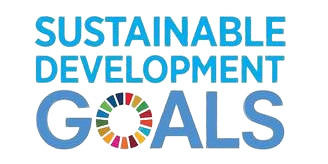Sustainability Reporting
Each year KTH compiles a Sustainability report about the University's work with to improve our economic, environmental and social impacts caused by everyday operations. The Sustainability Report details KTH's performance towards achieving our overall sustainability objectives. KTH also compiles an annual report against each of the Sustainable Development Goals (SDGs).
KTH and UN Sustainable Development Goals Report
Agenda 2030 and the UN’s 17 Sustainable Development Goals is an international call to action on the most pressing challenges facing the world and humanity. KTH has an important part in achieving these goals.

Our impact through education, research, collaboration and campus operations towards the UN’s SDGs is ranked among the top 100 in the world in the Times Higher Education University Impact Rankings in 2022.
Learn more about how KTH is tackling the SDGs in the reports below.
KTH UN Sustainable Development Goals Report 2023 (English) (pdf 6.1 MB)
KTH UN Sustainable Development Goals Report 2024 (English) (pdf 8.1 MB)
KTH's Sustainability Reports
KTH Sustainability Report summarizes the progress towards fulfilling KTH's Sustainability Objectives during the year.
Please see the swedish page for KTH Sustainability Report 2020-2024
KTH's carbon footprint 2015, 2019 and 2022
KTH's carbon footprint 2015, 2019 and 2022 according to the Greenhouse Gas Protocol (pdf 1.1 MB) presents KTH Royal Institute of Technology carbon footprint, including a description of the method and assumptions. The report also conains an analysis of the results in relation to KTH's Sustainability objectives and the potential for future emission reductions.
Calculations show that KTH has increased its carbon footprint by 18% since 2015 (10% since 2019) and has therefore not met its climate target for 2022. Purchased goods and services remain the category with the largest share of emissions (approximately 70%), followed by business travel (approximately 20%) and premises (approximately 8%).
The report also includes an analysis of the results in relation to KTH’s climate targets and the potential for future emission reductions. A key success factor for KTH’s climate efforts is addressing emissions from business travel in general, and air travel in particular. 2050 also recommends that KTH develop its methodology and data for a more detailed analysis of purchased goods and services.
